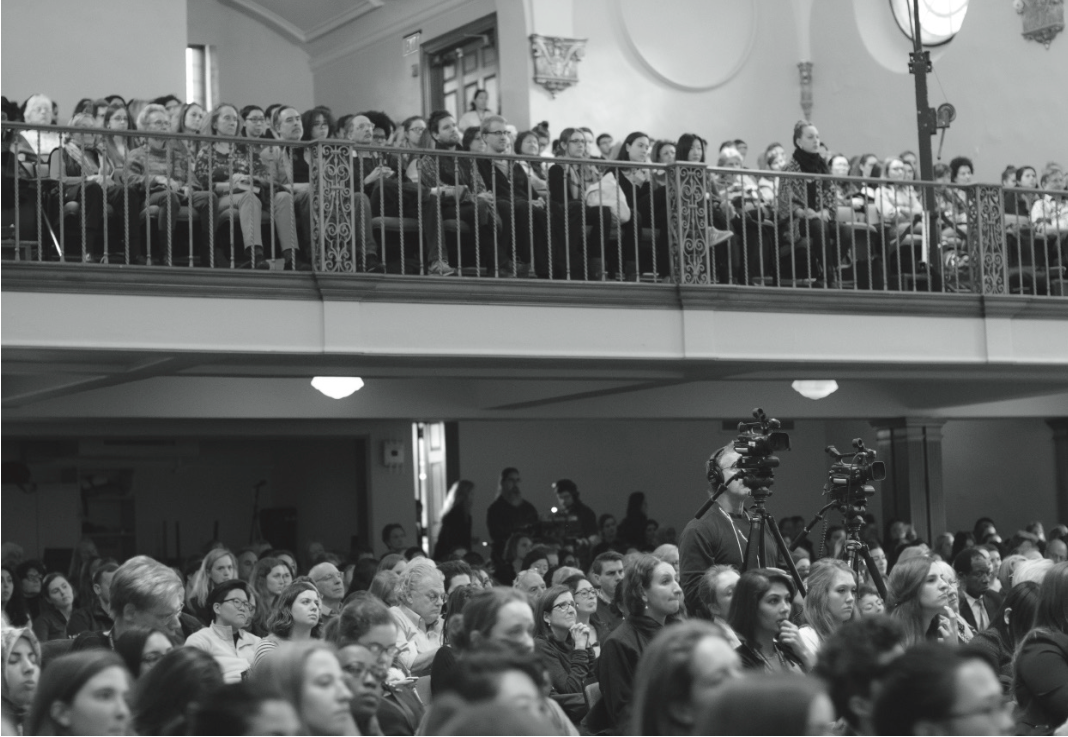Across the Wellesley social media scene are photos of groups of women in business-formal attire posed against the stereotypical Wellesley blue background. Some of the students are giving presentations while some are posed with Madeleine Albright ’59 with a caption cheekily referring to her as “Maddie.” While there is a certain gaiety and humor in these pictures, the social media posts are clearly sending a message representative of the prestigious work that they are doing.
The Albright Institute, along with Wellesley in Washington and the Lumpkin Summer Institute for Service-Learning, is a Wellesley-sponsored program that helps to develop leadership, academic and professional skills of Wellesley students and connect them with career building internships. These programs often include sponsored housing, a stipend and many networking opportunities. Students in Lumpkin all reside in Boston and have full-time summer internships working for nonprofit organizations to “create social change” in Boston. The Wellesley in Washington program offers predetermined student housing at George Washington University, a monthly stipend and mentors to which students are assigned by the Washington Wellesley Club.
While Wellesley in Washington does not have the same polished website and media attention of the Albright Institute, it is undeniable that automatic housing and a stipend make it easier for students to work in places that were previously unavailable to them.
“I look forward to being exposed to new ideas, new workplaces and new people,” Ananya Ghemawat ’17, who will be participating in the Wellesley in Washington program this summer, said. “I am really excited to be working in such a cosmopolitan city and I hope to attend as many events and lectures over the summer as possible — both within my fields of interest and outside of those fields!”
These internships are often pre-professional but the programs are not entirely about finding a full-time job directly out of college. Stacie Goddard, the Director of Wellesley in Washington, explained that they are also about gaining valuable professional experience.
“What I do think is important about internships is the ability to test out ideas about career paths,” Goddard said.
“It’s difficult to get a sense of what to do after college without having some first-hand experience at a job or without the ability to watch others do a job day-to-day. I think Wellesley in Washington tries to expose students to the myriad career paths in D.C. to help make those decisions down the road.”
In addition, the month-long program during wintersession and subsequent reunions give fellows the opportunity to network their way into a position.
“What I found really interesting is that once you approach someone and [say] ‘Hi, I would like to talk about your experience in XYZ,’ that’s when people are like, ‘awesome, let’s chat, let’s collaborate, I want to hear what you think, too,’ ” said Sierra Weingartner ‘17, current Albright fellow.
These programs are, in part, a fulfillment of some of the promises made when students are admitted to Wellesley. By limiting the applications to exclusively Wellesley students, it not only ensures that Wellesley students have a new line on their resumes for the future, but it also ensures that these students do work along the lines of the Wellesley brand.
“Now, more than ever,” the Albright Institute website says, “the world needs the honed skills, the unparalleled educational experience, and the unique understanding that women — Wellesley women — can bring to the international arena.”
The programs’ applicants seem to be a primarily self- selecting group of students who were already looking for opportunities as the programs are not heavily advertised. The degree of competitiveness varies between programs.
According to Goddard, 16 of the 75 Wellesley to Washington applicants were accepted with some of the applicants accepted outright and another third interviewed.
While the number of applicants may be smaller than the thousands that Goldman Sachs receives, the level of competition for these programs is quite high considering they pull from exclusively Wellesley students and that they seem to be advertised primarily by word of mouth. While Goddard stated that Wellesley in Washington was “vigorously” publicized through class and department emails, current Albright Fellows tend to agree that they found out about the program primarily through the recommendations of their friends or posts on social media.
“I was aware of the Institute when I applied, but I truly gained respect for the Institute after meeting the fellows my first year,” Sophie Sokolowski ’16 said. “One of my good friends, Michelle Vogelzang, was a senior in the Institute during my first year and I found her participation in the institution inspirational.”
Unlike participants of Wellesley in Washington and Lumpkin Fellows, Albright Fellows are put through a workshop during wintersession where they learn an interdisciplinary approach to solve international problems. Upon gaining these skills, they then search for an internship in the field of their choice. Despite the fact that the social media presence and ceremony around these programs are significant, do these Wellesley specific programs actually lead to increased ease in finding an internship and have the name brand they are touted to have?
“Not necessarily,” Weingartner ’17. “But I think that, truthfully, the name Albright and the name Wellesley give you enough that people are willing to talk to you.”






